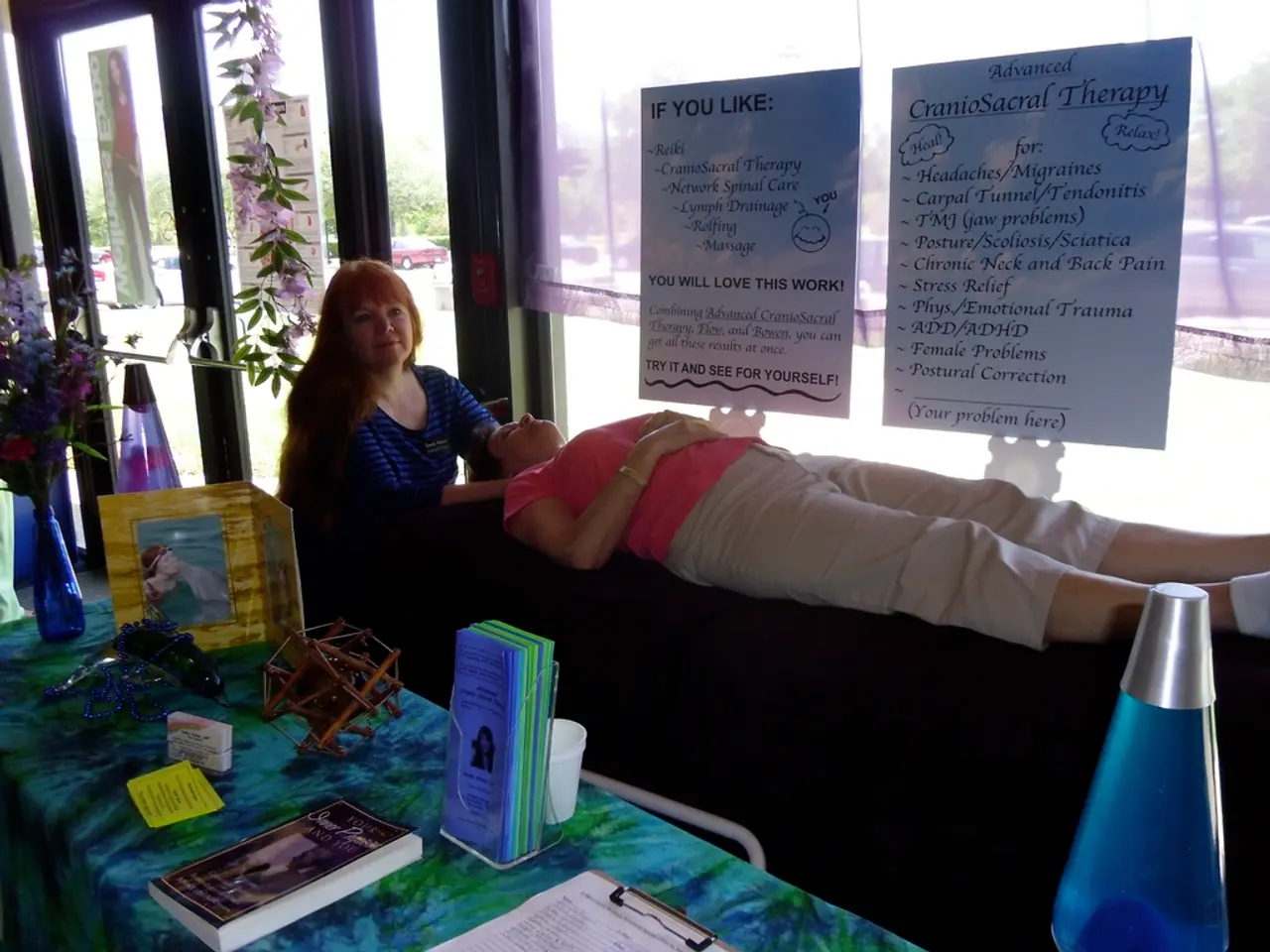Struggling with mental exhaustion? Explore symptoms and strategies for overcoming mental fatigue
Mental exhaustion, also known as burnout, is a distinct phenomenon from physical exhaustion and stress, with unique causes, symptoms, and remedies. Unlike physical exhaustion, which results from overusing muscles or lack of rest, mental exhaustion arises from prolonged emotional strain, decision fatigue, and life/work chaos. Stress, on the other hand, is typically a precursor to burnout but can be managed if addressed early.
The symptoms of mental exhaustion include lack of motivation, trouble concentrating, emotional numbness, irritability, mood swings, and changes in behaviour, among others. These symptoms can have a profound impact on a person's emotional wellbeing and cognitive function. In contrast, physical exhaustion primarily affects the body, causing sore muscles, heavy limbs, low stamina, and increased heart rate, among other symptoms.
Addressing mental exhaustion requires a different approach than managing physical exhaustion. Effective strategies include mindfulness and relaxation practices, physical activity, adequate rest and sleep, social support, setting boundaries, self-compassion, and professional help when necessary.
Engaging in mindfulness activities such as meditation, yoga, breathing exercises, or journaling can help reduce emotional overload and redirect focus away from negative thought cycles. Light physical activities like walking, stretching, or any enjoyable workout can help relieve stress and improve mood via endorphin release, but it's essential to avoid physical fatigue. Prioritizing 7-9 hours of quality sleep nightly can enhance emotional resilience and restore mental energy.
Connecting with trusted friends or family who can listen without judgment, providing emotional validation and reducing feelings of isolation, is also crucial. Learning to say no to additional stressors, separating work and personal life, and taking intentional breaks can prevent overwhelm. Replacing negative self-talk with kindness and understanding can protect long-term mental health.
If mental exhaustion is severe or persistent, consulting a mental health professional can provide tailored interventions such as therapy or counseling. It's important to seek help if symptoms persist, especially if they are accompanied by chronic chest pain and heart palpitations, severe depression or anxiety, or if they occur after starting a new medication.
Prevention strategies for mental exhaustion include choosing workplaces that prioritize well-being and work-life balance, avoiding doing too many tasks at once, practicing good self-care, and developing strategies for dealing with stress. Changing working conditions, such as taking more time off, reducing workload, or seeking more support from colleagues, can help alleviate mental exhaustion caused by work.
In some cases, certain medications, including some antidepressants, may exacerbate symptoms of mental exhaustion. Therefore, it's essential to consult a doctor about whether a different drug might be more beneficial. Self-care practices, such as exercising, eating a healthful diet, getting plenty of sleep, and staying hydrated, can help improve resilience and potentially alleviate symptoms of mental exhaustion.
In conclusion, understanding the differences between mental exhaustion, physical exhaustion, and stress is crucial in implementing targeted self-care measures to restore balance and prevent burnout's deeper emotional consequences. By recognizing the signs and symptoms of mental exhaustion and employing effective strategies, individuals can maintain their emotional wellbeing and cognitive function, ensuring they can continue to thrive in their personal and professional lives.
[1] American Psychological Association. (2020). Stress in America: Coping with Change. Retrieved from https://www.apa.org/news/press/releases/stress/2020/covid-19 [2] Mayo Clinic. (2021). Burnout: Prevention and treatment. Retrieved from https://www.mayoclinic.org/healthy-lifestyle/adult-health/in-depth/burnout/art-20048389 [3] World Health Organization. (2019). Burnout an 'occupational phenomenon': International Classification of Diseases. Retrieved from https://www.who.int/news-room/q-a-detail/burn-out [4] National Institute of Mental Health. (2021). Depression. Retrieved from https://www.nimh.nih.gov/health/topics/depression/index.shtml [5] Psych Central. (2021). Mindfulness. Retrieved from https://psychcentral.com/lib/what-is-mindfulness/
- Mental exhaustion, like emotional strain and decision fatigue, can impact a person's emotional wellbeing and cognitive function significantly, and it's unique compared to physical exhaustion.
- Addressing mental exhaustion may require practicing mindfulness, light physical activity, adequate rest, social support, setting boundaries, self-compassion, and seeking professional help when needed.
- Mindfulness activities, such as meditation, yoga, breathing exercises, or journaling, can help reduce emotional overload and refocus thoughts positively.
- Engaging in physical activities that provide stress relief, like walking, stretching, or a fun workout, is beneficial, but avoiding physical fatigue is essential.
- Adequate sleep is vital for enhancing emotional resilience and restoring mental energy, suggesting 7-9 hours of quality sleep nightly.
- If mental exhaustion persists or worsens, consulting a mental health professional for tailored interventions like therapy or counseling can be beneficial.
- To prevent mental exhaustion, consider choosing workplaces that prioritize well-being and work-life balance, practice good self-care, and develop stress management strategies like saying no, setting boundaries, and seeking support.




